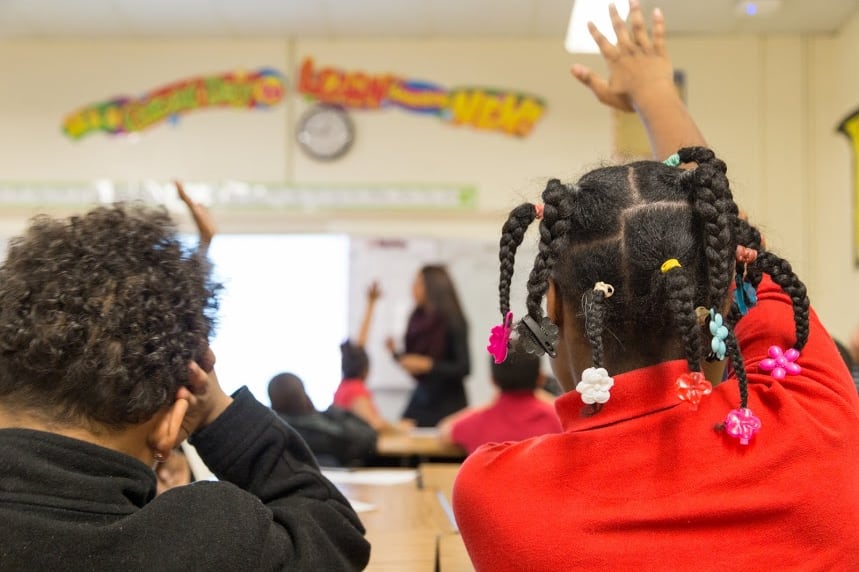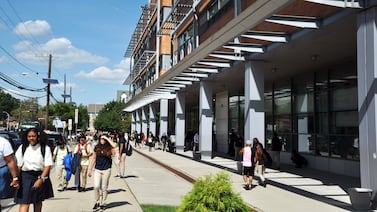Tennessee’s decision to close its school buildings the rest of the academic year means students will miss at least 50 days of classroom instruction — almost a third of the school year — because of the coronavirus pandemic.
Add in summer break, and most students will miss up to 19 consecutive weeks of in-person instruction. And they’ll be even further behind in the dozen or so districts that canceled up to a week of school this winter because of the flu season or bad weather.
The learning loss will challenge the state’s 147 school systems to take unprecedented steps to help students catch up — a conversation that’s also happening across the nation as leaders consider logistics, funding, and whether there’s the political will to pursue widespread recovery once schools reopen.
Even before Gov. Bill Lee last week urged districts to close for the rest of the academic year, Education Commissioner Penny Schwinn said Tennessee students would need more classroom time next year because of the historic disruption caused by COVID-19. In a presentation on March 30 to superintendents, she suggested that school systems consider new afterschool programs, optional summer school, and other strategies to extend learning time.
Across the U.S., other options on the table include starting the school year earlier in the fall, shrinking curriculum to cover only core subjects, weaving this year’s lessons into next year’s, and even holding back more kids from being promoted.
Schwinn says Tennessee will need to have a coherent plan to support districts to make up for learning gaps. However, local school boards ultimately will make the call about any changes to their academic calendars.
“I haven’t heard of any district yet that plans to start the school year early, but I think that could definitely be part of the discussion,” said Dale Lynch, executive director of the state’s superintendents organization.
Kevin Woods, a school board member in Memphis, says he’s open to a calendar adjustment. “This conversation should start with a question and not an answer,” he said. “How do we best recover lost learning time?”
Key to the planning will be determining exactly how much student learning has been stunted by this year’s closures. In other words, if your third-grader had to finish this spring using remote learning methods, will they be at a fourth-grade level come fall, or will they be behind?
A bevy of studies show that losing time in school sets students back academically, especially those who come from low-income families, have disabilities, or are English language learners. And although Tennessee districts have scrambled to shift to online learning options, other research suggests Tennessee shouldn’t count on those programs to replace regular school.
To diagnose how much students know, schools have access to testing tools, and those local assessments will be more important than ever come fall. Teachers also will need to work closely together across grade levels to ensure that essential academic standards are covered.
“You’ve heard of summer slide. Well, this is COVID slide, and it’s going to be much more dramatic, especially in mathematics,” said Stephen L. Pruitt, president of the Southern Regional Education Board, an organization that seeks to improve public education across the South.
His group convened a task force this week to brainstorm best practices for reopening schools with the help of leaders from 16 states, including Tennessee’s Schwinn and Eve Carney, chief officer for districts and schools.
“There’s a thousand ideas out there, but we’re going to develop a playbook that will focus not only on when our schools come back, but how they come back,” said Pruitt, a former education commissioner for Kentucky.
Among topics the group is tackling are:
- What’s the best way to diagnose and accelerate student learning?
- What kind of social-emotional support will be needed for students who have experienced the most dramatic educational upheaval in the last century?
- How should teachers be supported?
- What are the financial impacts?
“Schools and districts are going to need to have hard conversations about money,” Pruitt said. “For years, educators have felt like they had to do more with less. Well, now there’s going to be a lot less! We can’t just hope that the money thing is going to work out. We have to have a strategy.”
Tennessee is expected to receive almost $260 million from the federal government to help schools respond to the coronavirus. Districts will get 90% of that amount, with allocations based on their number of students from families with low incomes. The money can go toward learning recovery programs, as well as mental health services, and support for students with special needs, among other things.
“I think recovery will be a multiyear process, and this funding will help,” said Joey Hassell, superintendent of Haywood County Schools, a rural district near Memphis that will get about $830,000 from the emergency package.
He expects his school system to look at possibly extending the school day, reconfiguring daily schedules, and broadening summer learning programs, especially for reading and math.
Equally important to academic recovery, said Hassell, will be assessing and addressing the mental health of students.
“Kids are resilient, but we’ve not experienced this type of mass loss before,” he said, citing athletic seasons abruptly ended, parents losing jobs in the economic slowdown, and illness and deaths due to the virus.
“I think we need to be prepared to spend some time talking — but more importantly listening — to help our students recover from what has been a traumatic experience for our world,” said Hassell.






